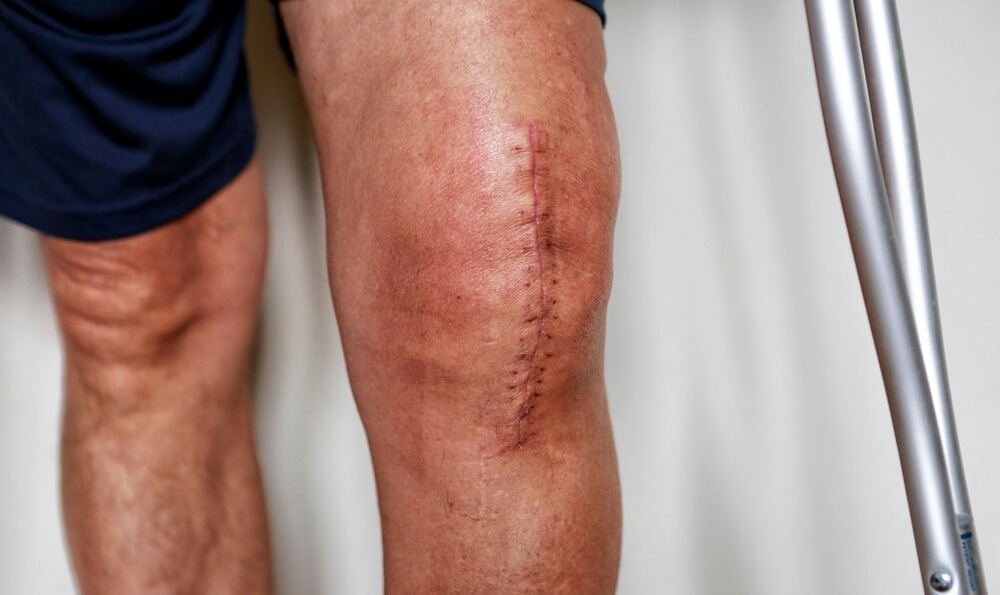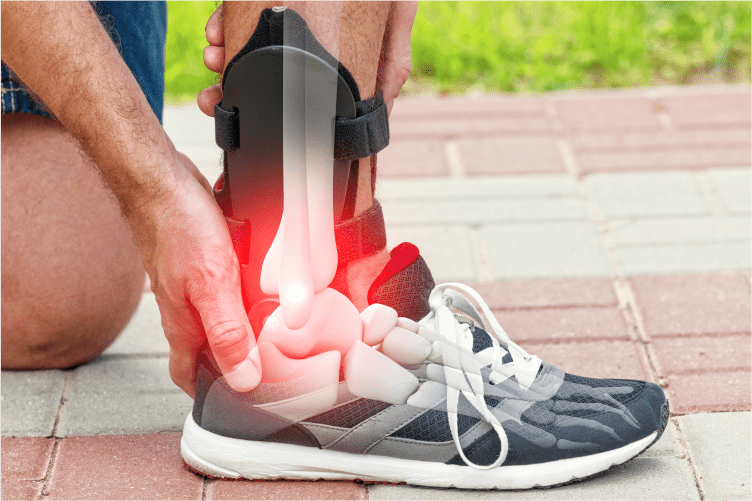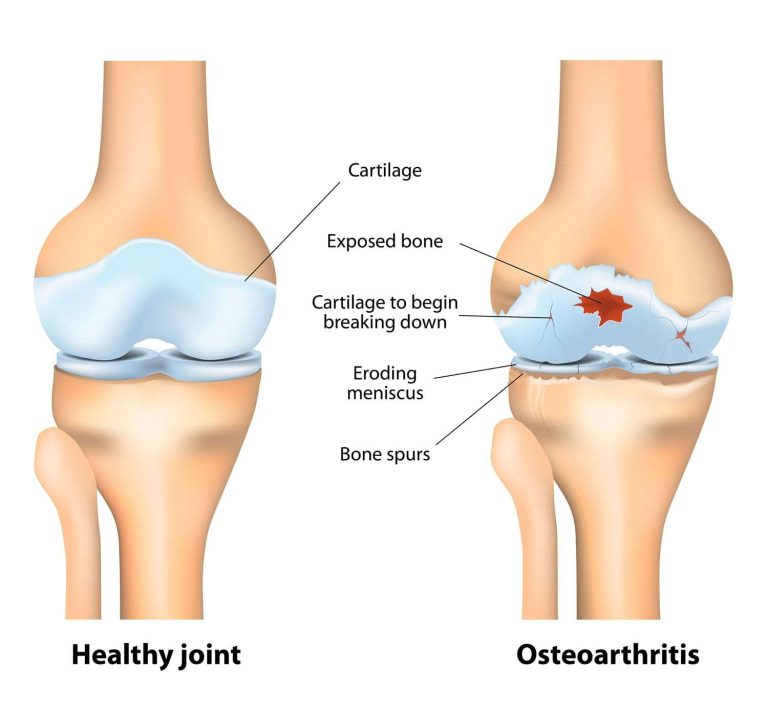Are you planning to get knee replacement surgery and wondering about the outcome and how long it will last? Knee replacement is a major procedure, and naturally, anyone considering it wants to know if it will provide long-term relief and mobility.
If you’re worried that a knee replacement won’t last long or that the procedure may not meet your expectations, this blog is a must-read for you. You’ll get clear information about knee replacement longevity, the success rate of knee replacement surgeries, and ways to ensure your implant lasts as long as possible.
You’ll also get an idea about what knee replacement surgery is, why it’s needed, how long it typically lasts, factors affecting its lifespan, success rates and why DR. GK JOINT AND BONE CENTRE- best hospital for knee replacement in South Bangalore is the best in business.
WHAT IS KNEE REPLACEMENT SURGERY?
Knee replacement, also called knee arthroplasty, is a surgical procedure where damaged parts of the knee joint are replaced with artificial components. These implants are usually made of metal, ceramic, or strong plastic, designed to replicate the knee’s natural movement.
The goal is to relieve pain, restore mobility, and improve the quality of life for people with severe knee damage. Modern knee replacements are highly advanced, providing smooth, stable, and functional joints for years.
WHY IS KNEE REPLACEMENT NEEDED?
Knee replacement is usually recommended for individuals with:
- Severe osteoarthritis– wear and tear of cartilage causing pain and stiffness.
- Rheumatoid arthritis– inflammation and joint damage over time.
- Post-traumatic arthritis– damage from past injuries or fractures.
- Loss of mobility– difficulty performing daily tasks like walking, climbing stairs, or standing for long periods.
HOW LONG DOES A KNEE REPLACEMENT LAST?
Many patients ask, “How long does a knee replacement last?” Studies indicate that most knee replacements last 15 to 20 years, and in some cases, even longer with proper care. Research shows:
- About 90% of knee replacements last 15 years.
- Around 80% last 20 years.
FACTORS AFFECTING LONGEVITY-
Several elements can influence how long your knee replacement lasts:
- Patient Age and Activity Level: Younger, highly active patients may experience faster wear than older, less active individuals.
- Weight: Excess weight puts more stress on the knee joint, reducing implant life.
- Surgical Technique & Implant Type: Advanced surgical procedures and high-quality implants increase longevity.
- Post-Surgery Care: Adherence to physical therapy, regular check-ups, and avoiding high-impact activities improves durability.
- Overall Health: Conditions like diabetes or osteoporosis can affect healing and implant lifespan.
By understanding these factors, patients can make informed decisions and take steps to prolong their knee replacement’s life.
SUCCESS RATES & PATIENT OUTCOMES-
The success rate of knee replacement is very high, with more than 90% of patients reporting significant pain relief and improved mobility within the first year. Most patients regain the ability to perform daily activities, including walking, climbing stairs, and light exercises. Modern implants and surgical techniques have improved outcomes significantly, making knee replacement a highly reliable procedure for long-term joint health.
TIPS TO INCREASE IMPLANT LIFE-
While knee replacements are designed to last for many years, how you care for your new joint can make a huge difference in its longevity. Here’s a detailed guide:
1. Follow Your Physical Therapy Plan- Strengthening the muscles around your knee helps support the joint, improves stability, and reduces strain on the implant. Regular exercises prescribed by your physiotherapist are essential.
2. Maintain a Healthy Weight- Extra weight puts stress on your knee implant, accelerating wear. Even losing a few kilograms can significantly reduce pressure and prolong the implant’s life.
3. Avoid High-Impact Activities- Activities like running, jumping, or heavy lifting can wear down the implant faster. Opt for low-impact exercises such as swimming, walking, cycling, or yoga to stay active without stressing the joint.
4. Regular Follow-Ups- Attend all scheduled check-ups with your orthopedic surgeon. Regular monitoring can detect early signs of wear, loosening, or complications, allowing timely intervention.
WHEN TO SEE A DOCTOR?
Even with proper care, certain signs indicate that it’s time to consult your doctor. Early intervention can prevent complications and preserve the implant. Watch out for:
1. Persistent or Worsening Pain: Mild discomfort is normal during recovery, but continuous or increasing pain could indicate an issue with the implant or surrounding tissues.
2. Swelling, Redness, or Warmth: These could be signs of infection or inflammation and require immediate attention.
3. Reduced Range of Motion: Difficulty bending or straightening the knee beyond what’s expected in recovery could signal stiffness, scar tissue, or implant problems.
4. Instability or Looseness: If your knee feels unstable, or gives way while walking, it may indicate loosening or alignment issues with the implant.
FAQs-
1. Can knee replacements fail?
–Yes, but failure is rare and usually due to infection, loosening, or wear over time.
2. Is knee replacement suitable for all ages?
–It’s most common in older adults, but younger patients with severe joint damage may also benefit.
3. How soon can I walk after knee replacement?
–Most patients start walking with assistance within 24 hours post-surgery.
4. Can I play sports after knee replacement?
–Low-impact activities like swimming or cycling are recommended; high-impact sports should be avoided.
CONCLUSION-
Knee replacement is a highly effective procedure for relieving pain, improving mobility, and enhancing quality of life. With proper care, most implants last 15–20 years or more. Understanding knee replacement longevity, factors affecting implant life, and following post-surgery guidelines can ensure long-term success. At DR. GK JOINT AND BONE CENTRE– best hospital for knee replacement near jayanagar we offer treatments for trauma care, ligament injury care, fracture care, advanced joint care and many more. Book your consultation now!




